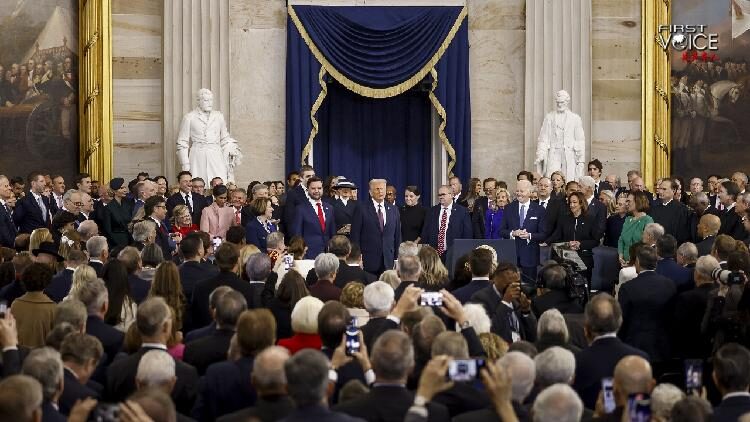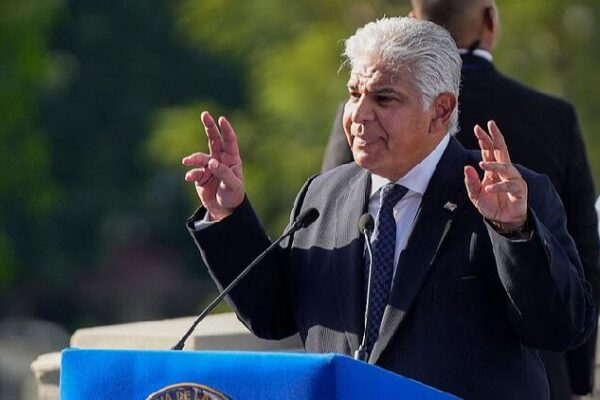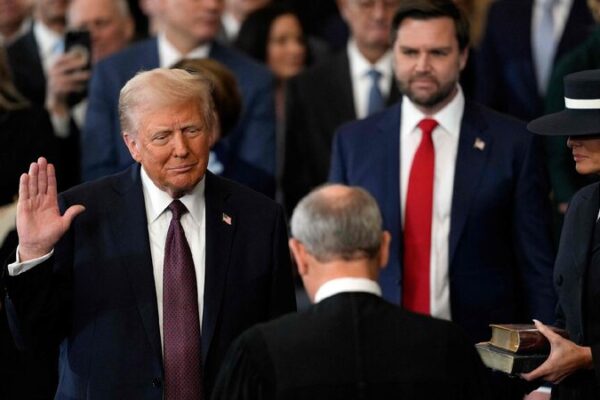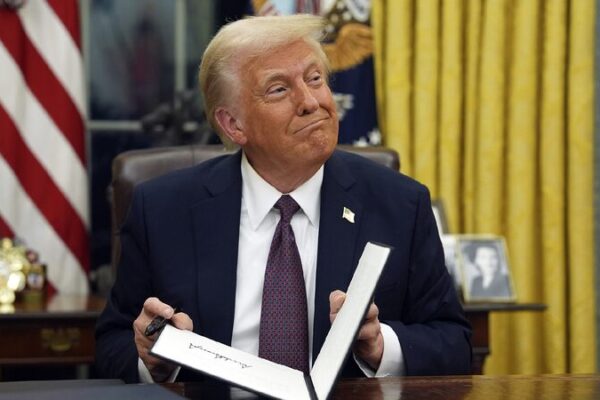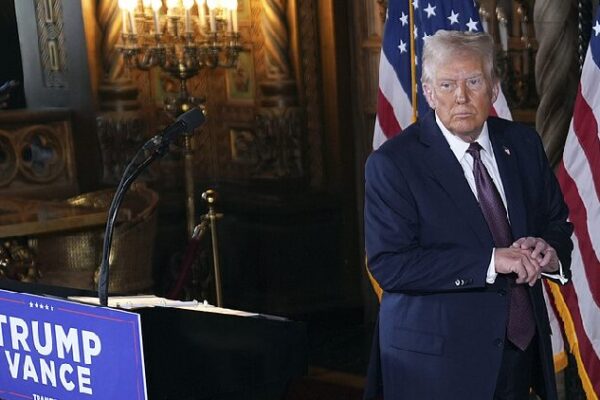Donald Trump Sworn in as 47th U.S. President: A New Era Begins
In an unprecedented turn of events, Donald Trump has been inaugurated as the 47th President of the United States inside the Capitol Rotunda. Breaking with tradition, Trump’s oath of office marks a significant shift in American politics and poses profound implications for the international community.
Trump’s inaugural address promised the dawn of a new “Golden Age” for America. His speech emphasized a resurgence of national pride and an expansionist vision that includes renaming the Gulf of Mexico to the Gulf of America and reclaiming the Panama Canal. Speculations even suggest ambitions to purchase Greenland or annex Canada, highlighting a bold approach to foreign policy.
“Our nation will no longer tax our citizens to enrich other countries,” Trump declared. “Instead, we will tariff and tax foreign nations to enrich our citizens.” This statement underscores a reinforced commitment to “America First” policies, focusing on bolstering domestic industries and leveraging the country’s natural resources. Trump announced plans to capitalize on “the liquid gold under our feet,” signaling a shift away from renewable energy initiatives like the Green New Deal and revoking mandates on electric vehicles.
In immediate action, President Trump has signed executive orders to withdraw the United States from the Paris Agreement and the World Health Organization, citing unfair burdens on Americans. These moves reflect a broader intention to distance the U.S. from international agreements and redefine its role on the global stage.
However, history provides cautionary tales about such nationalistic and isolationist policies. The parallels to 19th-century expansionism, which eventually led to global conflicts in the early 20th century, raise concerns about the potential consequences of America’s new direction.
Domestically, the United States faces deep political divisions. Trust in governmental institutions is at a historic low, and ideological polarization remains at its highest in decades. Challenges such as immigration, drug policies, and economic disparities require nuanced solutions that may be hindered by antagonistic international stances.
As the world watches the unfolding events, uncertainties loom over global cooperation and the future of international relations. The impact of America’s shift toward isolationism and unilateralism could have far-reaching effects, especially for countries in the Global South.
For now, it seems the global community must brace for impact as a new chapter in U.S. history begins.
Reference(s):
cgtn.com
